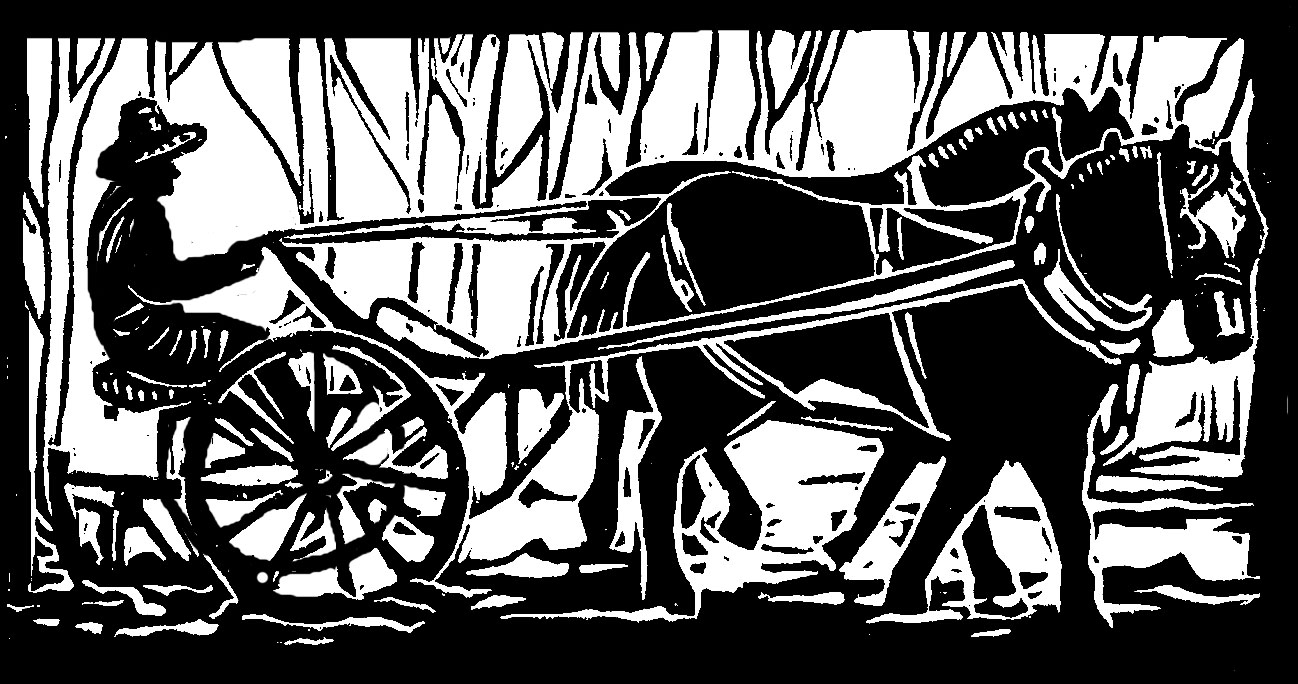I am a farmer, tending biodynamically grown vegetables here in southwestern New Hampshire, with one spouse, one daughter, one scratchy-bitey kitty, two teams of draft horses, two greenhouses, five acres of crops, an orchard, a pond, pastures, hayfields, and woods. Mostly I like farming; it feeds me, and my family, and lots of other people too: we have nearly a hundred families coming to our farm through the Community Supported Agriculture season.
As I say, mostly I like farming. When a farmer gets to be outside hand weeding a lush crop of carrots on a gorgeous spring day, listening to the liquid warble of the tree swallows making a nest in one of the birdhouses, watching their equally liquid flight up, down, over, and around the birdhouse; and hear the pleasant jangling of the horses' harness as they and the teamster harrow the next section of garden; and smell the good dirt and carrot greens smell; and feel the warm sun, and enjoy the cooling breeze that keeps the black flies away; and pause to watch the clouds float serenely in the sky; and imagine the hordes of people that are gazing wistfully out of stuffy offices, she feels grateful indeed. She thinks, Heavens, why isn't everybody farming?
On another day, in mid-fall perhaps, when it is raining hard and cold, and that same farmer has to harvest vegetables for six hours straight, in that hard cold relentless rain; and the deer have gotten through the electric fence again and eaten most of the beet greens, and the woodchuck has gotten through the electric fence again and eaten most of the lettuce; and the enormous bill for the new greenhouse plastic has just come in the mail; and the horses have gotten out of the paddock and galloped over the newly seeded fall cover crop; and the kitchen, which should be a lovely warm respite with nourishing delicious hot meals waiting on the table, especially after the six hour rain harvest, is instead overrun by five gallon buckets of vegetables that must be processed immediately for the winter, the buckets competing for space with the teetering piles of dirty dishes that no farmer has the energy or inclination this time of year to wash; and the farmer thinks of the hordes of people that are cozily ensconced in their warm, dry, comfortable offices, she grits her teeth and thinks, Heck. This is why . . .
This is about the time a farmer might need to give herself a farming pep talk: It’s so local! It’s so green! It’s so organic! It’s so biodynamic! It’s so family! It’s so essential! We must have food! Or we die!
Plus there are the tree swallows, the nice horses, the woodchuck, the deer, the bugs! The spouse, the daughter, the kitty! And all the lovely people coming this rainy afternoon to the farm to pick up vegetables! We all love to eat! This farm is feeding all of us!
Oh good farm! Oh good life! But the most cheering part of the farmer pep talk is that it is, after all . . . mid-fall! The big harvest is almost over. The beautiful restful light of winter beckons.
Winter slows farming down considerably, and it also helps a farmer remember that it means a lot to mostly like your work. There are so many people in the world who A) hate their work or B) have no work. I feel lucky to have good work I love, in a good place I love. Finding the continuing strength and inspiration to work and live “green” surely comes from that fundamental relationship with the world: love.
Originally published in the Monadnock Shopper News, Oct 3 - Oct 9, 2012

